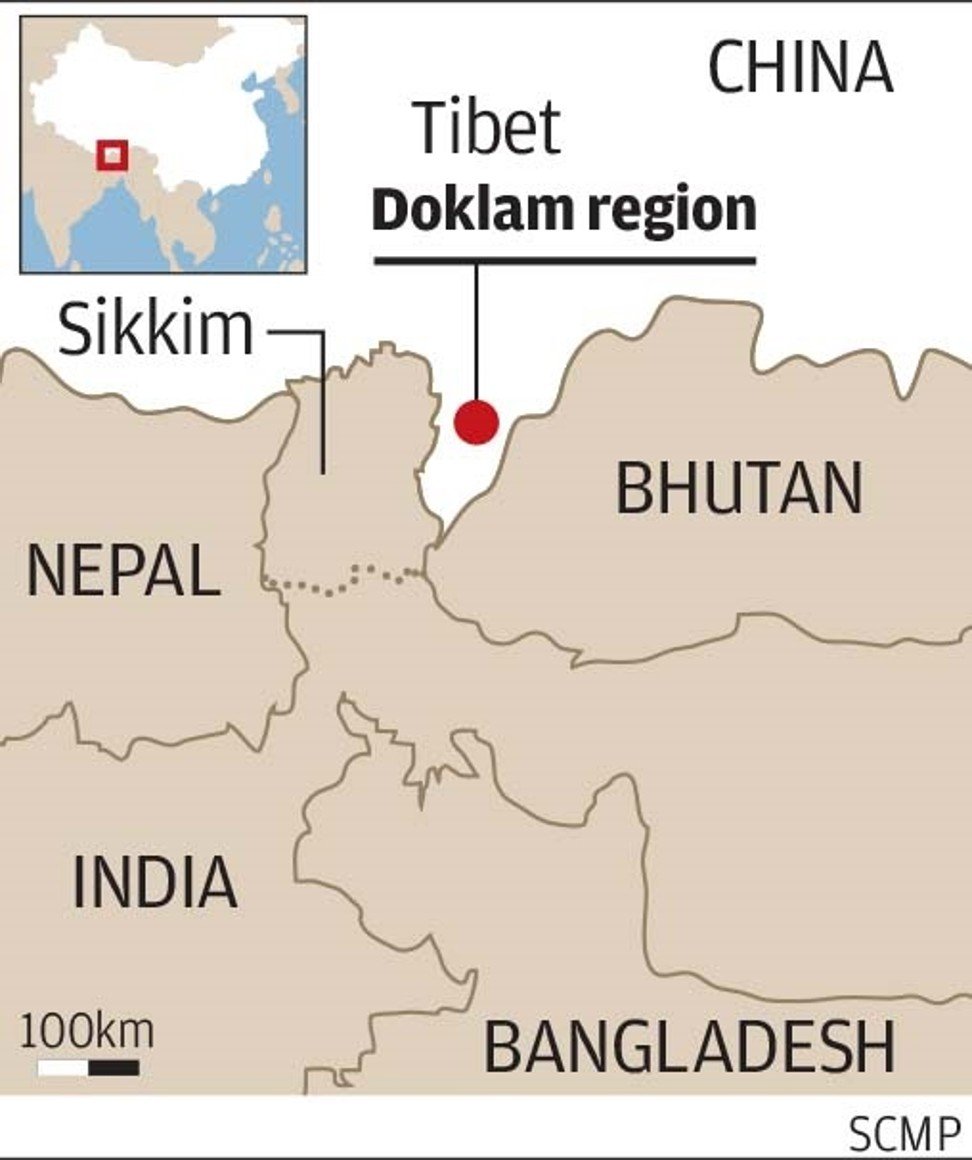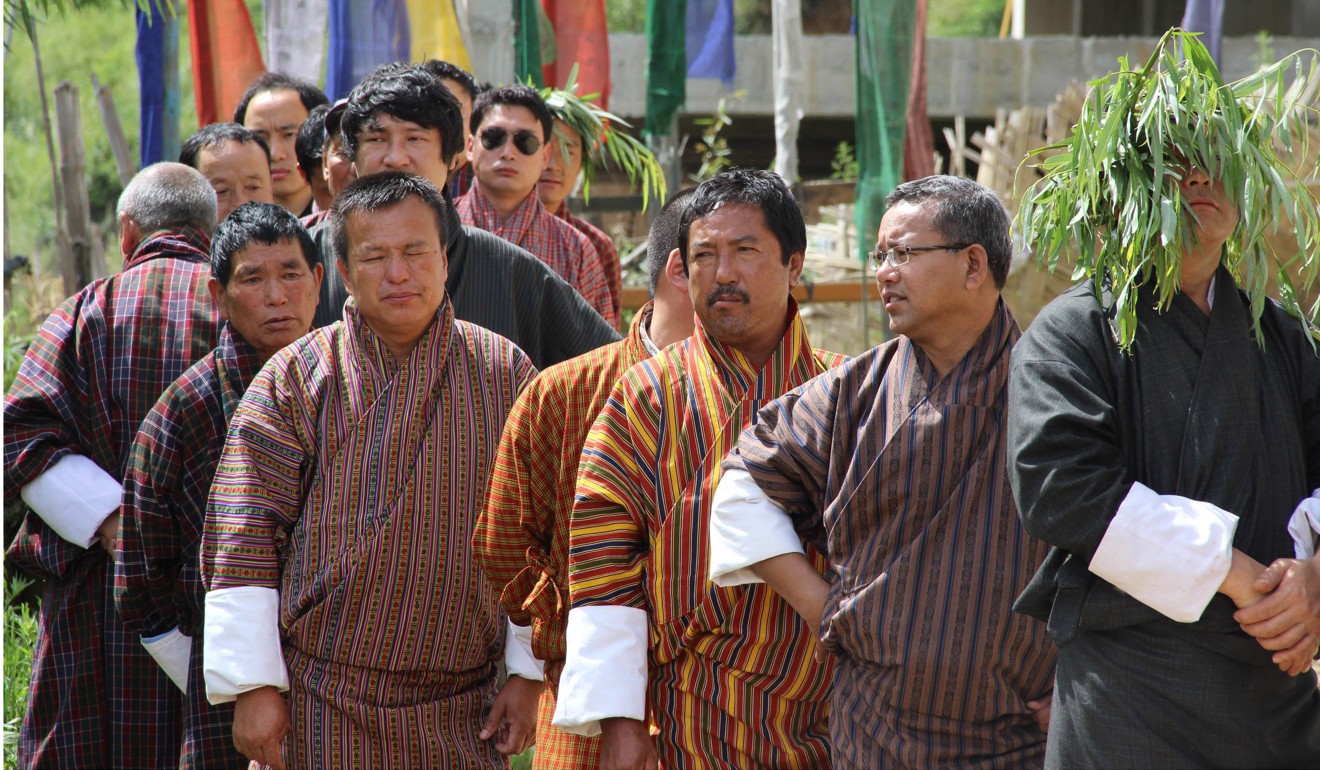
Is Bhutan drawing closer to China, and what can India do about it?
Border dispute could prove less influential than economic friction with biggest trade partner
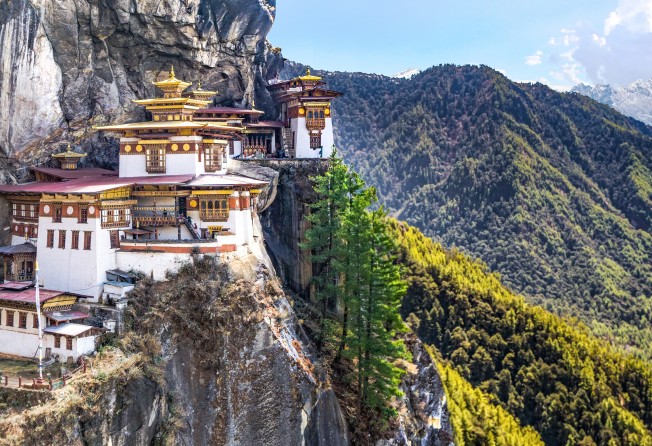
The ending of a stand-off between Chinese and Indian troops in the Himalayas on Monday may have eased bilateral tensions but both countries will continue to test their influence in the small nation of Bhutan, which is sandwiched between them.
In a brief statement published on the website of its foreign ministry on Tuesday, Bhutan said it welcomed the disengagement by both sides.
“We hope this contributes to the maintenance of peace and tranquillity and the status quo along the border of Bhutan, China and India in keeping with the existing agreements between the respective countries,” the statement said. It was its first official statement on the row since June 29 when it called China’s construction of a road on the Doklam plateau a violation of agreements in 1988 and 1998.
Beijing-based Himalayan analyst Rupak Sapkota said voices in Bhutan advocating closer ties and more cooperation with China were becoming louder and “gradually gaining momentum”.
“Bhutan will try to have more room for diplomatic manoeuvre in the future, since China can offer Bhutan more economic support and tourism exchanges than India,” he said.
Many Bhutanese say the stand-off on the Doklam plateau, where the borders of the three countries meet, highlighted the need for a dispute over the border between Bhutan and China to be resolved.
“It would be stupid to assume that we can stall the matter indefinitely,” said freelance columnist Yeshey Dorji. “A day will dawn on us when we have to make the settlement – we all know that. Thus, it is better that we do it sooner than later.”
The landlocked Himalayan kingdom has been bound by treaty since 1949 to seek India’s guidance on foreign policy, with the treaty renewed in 2007. Bhutan also has diplomatic relations with Japan, but not with any of the five permanent members of the UN Security Council, including China, its only other immediate neighbour. It is also the only neighbour that China has no formal relations with.

“Bhutan is a sovereign country, therefore China’s attempt to have some bilateral understanding with Bhutan to resolve the border tension should not be a problem,” said Jagannath Panda, head of the East Asia Centre at the Institute for Defence Studies and Analyses in New Delhi, while warning against a deal that ignored India’s interests
He said India believed its Friendship Treaty with Bhutan made it “mandatory for Bhutan to take into account India’s concerns before striking any border negotiation deal with the Chinese”.
India and China had also agreed in 2012 to consult each other on any development in the border area, Panda said, and that included the China-Bhutan border. “Hence, any ‘border negotiation’ between China and Bhutan must factor India’s security interests, if not India’s demands,” he said.
During the 70-day stand-off, India claimed Bhutan was fully on its side and that its troops had moved in at the request of the Bhutanese government. The Bhutanese government in Thumpu remained silent, apart from issuing a statement June 29 protesting against China’s building of a road in the disputed area.
Some Bhutanese critics, including Wangcha Sangey a former publisher and head of the country’s Chamber of Commerce and Industry, have expressed concerns that the ultimate objective of India’s military adventurism in Doklam could be to annex Bhutan, as it did Sikkim in 1975.
But many Bhutanese view India more positively than China, which is seen as a bully for its annexation of neighbouring Tibet.
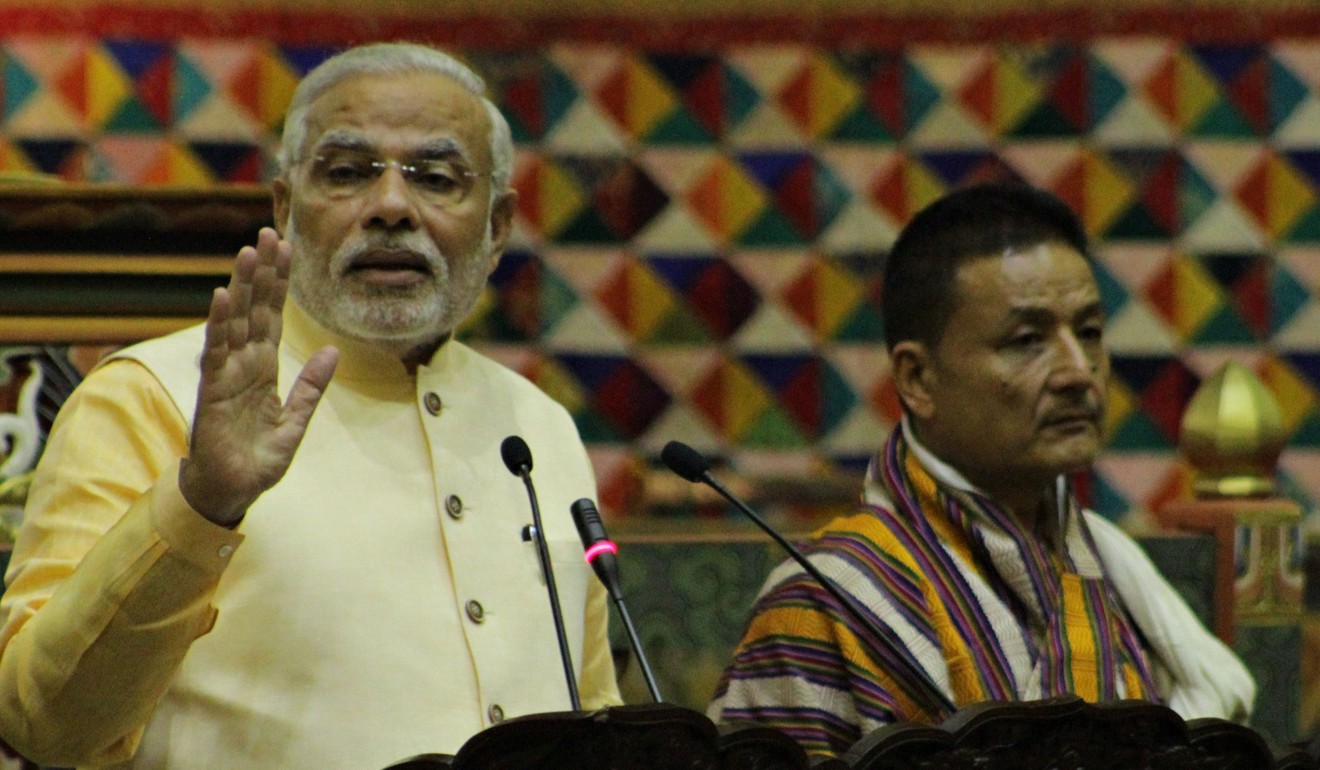
“I can’t blame anything on India as they help us in a lot of ways,” said one Bhutanese contacted by the South China Morning Post, who insisted on anonymity. “We signed a treaty ... Bhutan is being a true friend and being moral.”
The Bhutanese government has also remained loyal to India in 24 rounds of talks with China on the border issue. Tenzing Lamsang, the editor of influential weekly newspaper The Bhutanese, said in a commentary published by the Indian Express that Bhutan had rejected China’s “generous offer” to give up two other disputed regions totalling 495 sq km – Jakarlung and Pasamlung along its central and eastern border – in exchange for 269 sq km of territory in Doklam “to protect India’s security interests in the western sector”.
But Lamsang said Bhutan’s economic frustrations with India could prove more influential than the Doklam dispute.
“In the bigger picture for Bhutan, Doklam, no doubt, is a serious issue, but it is a comparatively minor distraction compared to the developments in the economic sector,” he wrote in the commentary.
Hydropower lies in the heart of the economic ties between Bhutan and India. It accounts for around 20 per cent of Bhutan’s gross domestic product, and 70 per cent of the power generated is exported to India. Taxes and dividends from hydropower companies constituted more than 40 per cent of the Bhutanese government’s revenue, according to an Asia Development Bank report in 2013.
Based on an agreement with India, Bhutan ambitiously planned a series of new hydro projects to produce an additional 10,000 megawatts – more than six times its generating capacity in 2013 – by 2020.
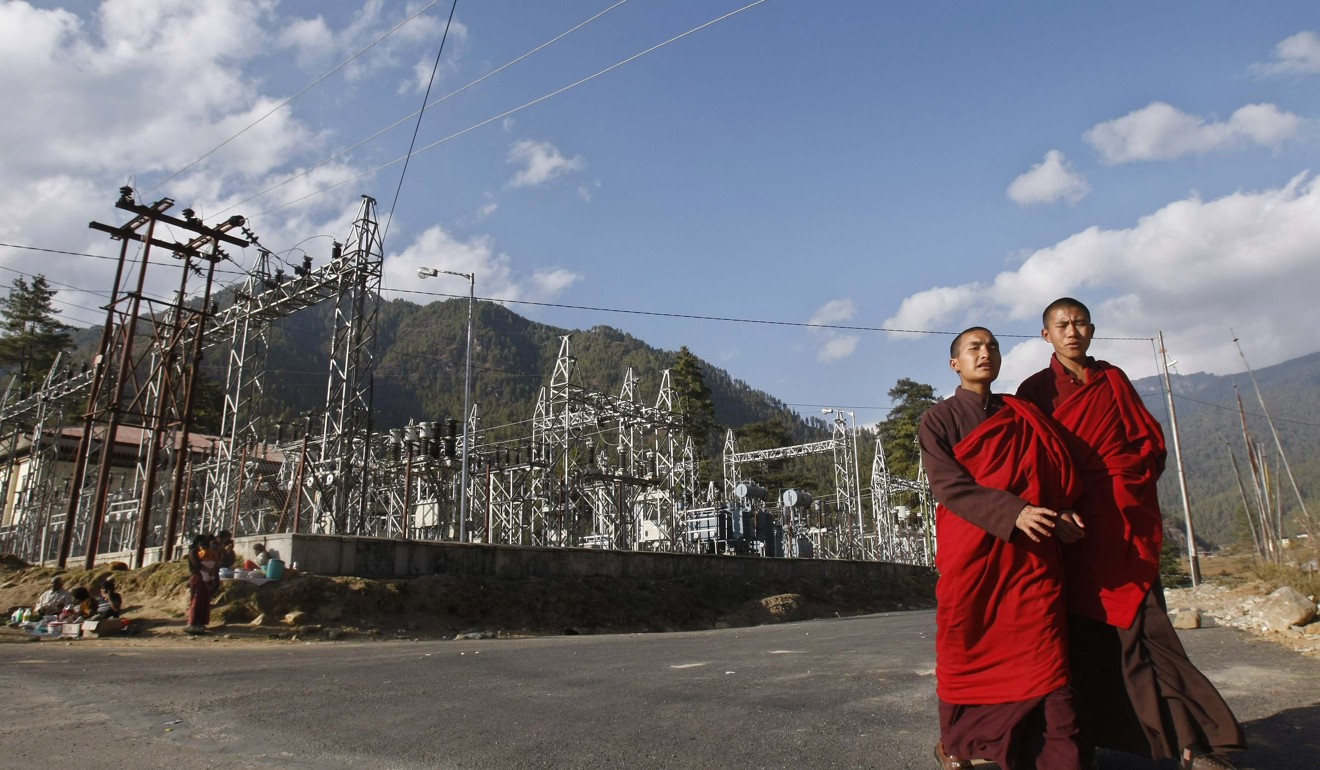
“Bhutan’s entire economic hopes have been pinned on selling hydropower to India”, Lamsang said in the commentary.
However, that hope faded after India declared it had a power surplus last year. New Delhi said the 2020 10,000 MW plan was “not possible”, and the price of Bhutanese power has since dropped.
Bilateral trade between Bhutan and India was worth US$516 million in 2015, with Bhutan recording a US$150 million trade deficit.
“While some may assume or have calculated that this would make Bhutan more dependent on India, it may very well have the opposite impact as Bhutan would have to really explore a host of economic options to sustain its economy in the long run,” Lamsang said in the commentary.
In comparison, Bhutan’s bilateral trade with China only just topped US$10 million. But an influx of Chinese visitors since the wedding of Hong Kong actors Tony Leung Chiu-wai and Carina Lau Ka-ling there in 2008 has made them the second-largest group of visitors in Bhutan, behind only Indians.
One unofficial estimate says that Chinese visitors, including those from Hong Kong and Taiwan, make up a fifth of the tourists entering Bhutan, which caps visitor numbers at 30,000 a year.
“For a smaller nation like Bhutan, a wise way to survive is trying to keep a balance between major powers, but for Bhutan, they are unable to do that. And the fate of Sikkim [annexation by India] is not entirely impossible,” said Sun Shihai, a South Asia expert at the Chinese Academy of Social Sciences.
But China would want to proceed with caution, Sun added, because it did not want to offend India.
“China does not want to challenge India’s status in South Asia,” he said.
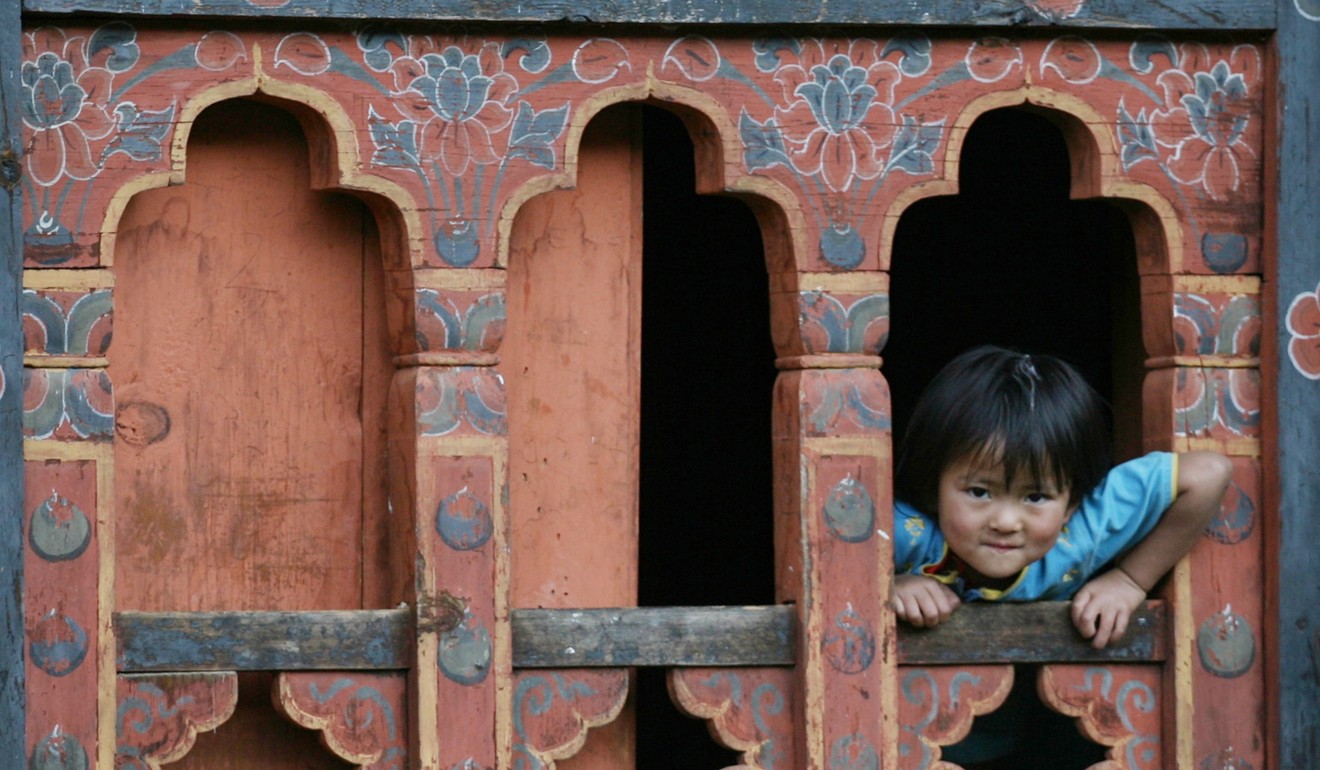
One force bringing younger Bhutanese closer to China is the internet, with online Chinese-language lessons increasingly popular because China-related tourism is now a good business.
Tshepel is one of those studying Chinese online. She attended Sikkim University in India but prefers Chinese and Korean actors over Bollywood stars and uses subtitles to follow the latest Chinese television romances, including Love O2O, starring Yang Yang and Zheng Shuang.
“I always watch all the Chinese dramas,” she said. “Bhutanese people are fans of K-pop and Korean drama and Chinese drama too.”
Noko, a Bhutanese student at China’s Yunnan Minzu University, has a practical reason for hoping her country can establish diplomatic ties with China. She has to travel to Kathmandu in Nepal to get her Chinese visa and in the absence of direct flights between Bhutan and Kunming is forced to
detour through Bangkok or Calcutta, almost doubling the travel time and cost.
“It would be very convenient if there are direct flights – maybe cheaper as well,” she said.
